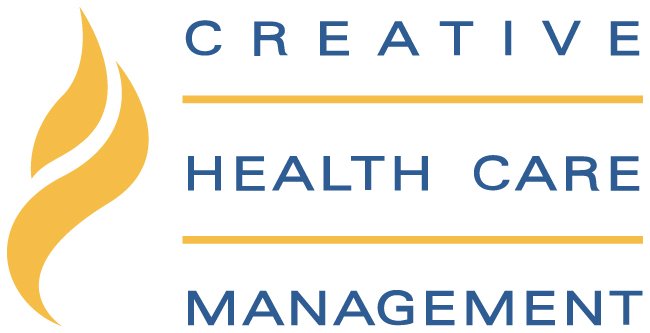Nursing is a dynamic and multifaceted profession that requires a unique combination of knowledge, skills, and personal attributes to provide exceptional patient care. As healthcare evolves and becomes increasingly complex, the demand for highly competent nurses has never been greater. How can healthcare facilities ensure their nursing and healthcare providers are up to the challenge?
We will explore various aspects of nursing competency, from defining its attributes and components to assessing and evaluating it in practice. We will also discuss the challenges faced by healthcare institutions in maintaining nursing competence and how education and training can play a crucial role in enhancing it.
Key Takeaways
- Nurse competence encompasses multiple attributes, such as knowledge, skills and values.
- Healthcare organizations must prioritize ongoing professional development and invest in innovative education methods to maintain nursing competency.
- Creative Health Care Management offers global consulting services and educational resources for improving nursing competency and the competency assessment process.
Understanding Nursing Competency: Definitions and Attributes

Competency in nursing is a multifaceted concept that encompasses:
- Knowledge
- Skills
- Attitudes
- Values
These attributes are necessary for providing safe and effective patient care. As defined by Takase and Teraoka, nurse competence is the ability to effectively exhibit a set of attributes, including personal characteristics, professional attitude, values, knowledge, and skills, to fulfill one’s professional obligations through practice. The American Nurses Association recognizes the importance of integrating multiple elements into competency frameworks, such as technical, cognitive, and emotional aspects of practice, to ensure that nurses evaluate a holistic approach to nursing competency, clinical competence, and professional competence.
Assessing and enhancing nursing competency requires identifying various domains of professional competency, including assessing professional competence. These domains include:
- The capacity to exercise judgment by integrating knowledge, skills, values, beliefs, and experience acquired during one’s nursing career
- A holistic approach to nursing competency that acknowledges the importance of considering the entirety of the individual, comprising their physical, mental, social, and spiritual health
- Promotion of patient-centered care and the overall quality of nursing practice
This holistic approach to nursing competency is essential for providing high-quality care and ensuring the well-being of patients.
Professional Development and Growth
Maintaining and enhancing nursing competency heavily relies on continuous professional development (CPD). It enables nurses to refresh their knowledge and abilities, stay abreast of the most recent advancements in their field, and acquire new skills. CPD is deemed fundamental to professionalism and lifelong learning in nursing, as it assists nurses in preserving their competence and enhancing the quality of nursing care they provide.
Various strategies for those nurses working to stay current with the most recent nursing research, standards, and best practices in their field include:
- Continuing education
- Conference attendance
- Participation in workshops
- Learning from colleagues in diverse work settings
This commitment to ongoing professional growth not only ensures that nurses have the necessary knowledge and skills to provide high-quality patient care but also contributes to their personal satisfaction and career advancement.
Components of Nursing Competency

Nursing competency consists of three primary components:
- Understanding people: This involves comprehending and empathizing with patients, recognizing their individual needs, emotions, and situations, and effectively communicating with them to build rapport and establish trust.
- Providing people-centered care: Connecting with patients on a personal level greatly aids in delivering comprehensive and patient-centered care, leading to improved patient outcomes and higher satisfaction levels.
- Improving nursing quality: By understanding and providing people-centered care, nurses can contribute to improving overall nursing quality.
By focusing on providing people-centered care, nurses can tailor their approach to each patient’s unique needs and preferences, thus ensuring that the care they provide is personalized, effective, and compassionate. Concurrently, improving nursing quality requires a continuous effort to raise the standard of care provided by nurses, achieved through evidence-based practice and continuous education. Collectively, these components form the foundation of nursing competency, which is essential for delivering high-quality nursing care and achieving optimal patient outcomes.
Understanding People
Understanding people in nursing involves an objective and deep understanding of each patient, acknowledging their uniqueness, and considering their physical, emotional, social, and spiritual dimensions. Understanding patients on a deeper level is imperative for building rapport, effectively communicating, and providing compassionate and empathetic care.
Nurses often encounter challenges when attempting to comprehend patients from varied cultural backgrounds, such as:
- Language barriers
- Cultural disparities
- Stereotypes and prejudices
- Differing health beliefs
Cultural competence development and open communication fostering allows nurses to better comprehend and appreciate their patients’ diverse perspectives and experiences, enabling more effective and inclusive care.
Providing People-Centered Care
Providing people-centered care involves delivering care that is tailored to the individual needs and preferences of patients. This approach not only ensures that patients receive the most appropriate and effective care possible but also offers and creates a culture of empathy and compassion within the healthcare setting. By focusing on the unique needs of each patient, nurses can establish a more personalized connection with their patients, thus enhancing their overall care experience and satisfaction.
There are several advantages to providing people-centered care in nursing, including improved patient outcomes, increased patient satisfaction, and enhanced reputation for healthcare organizations. By prioritizing the needs and preferences of patients and ensuring that care is tailored to their individual circumstances, nurses can deliver more effective and compassionate care, ultimately leading to better patient outcomes and increased satisfaction.
Improving Nursing Quality
Improving nursing quality is a critical component of nursing competency, as it directly impacts the standard of care provided by nurses and, ultimately, patient outcomes. To enhance nursing quality, healthcare organizations must prioritize evidence-based practice, ongoing education, and training, as well as support a culture of continuous learning and professional development for their nursing staff. By staying abreast of the latest research, standards, and best practices in their field, nurses can ensure that they have the necessary knowledge and skills to provide high-quality care to their patients.
Moreover, healthcare organizations should invest in various training methods and approaches, such as simulation, role-play, and problem-based learning, to promote the development of critical thinking skills, clinical reasoning, and decision-making skills among their nursing staff. These training methods not only enhance nursing competency but also foster a culture of continuous learning and improvement within the healthcare setting, ultimately leading to better patient outcomes and increased satisfaction.
Assessing and Evaluating Nursing Competency

Assessing and evaluating nursing competency is a critical process for healthcare organizations. It helps them:
- Identify areas that require improvement
- Develop strategies to address these gaps
- Identify knowledge and skill gaps
- Track nurse satisfaction and leadership skills
By implementing these measures, healthcare organizations can ensure that their nursing staff is adequately prepared to provide high-quality care to their patients.
Furthermore, nursing competency evaluation provides valuable feedback for nurses. It helps them pinpoint areas that might need additional training or support for performance improvement and overall nurse competency and enhancement. By promoting a culture of continuous learning and improvement, healthcare organizations can not only address the challenges associated with maintaining nursing competency but also ensure that their nursing staff is well-equipped to meet the demands of an ever-changing healthcare landscape.
Identifying Knowledge and Skill Gaps
Identifying knowledge and skill gaps is a key aspect of assessing nursing competency. It allows healthcare organizations to:
- Identify areas where their nursing staff might need extra training or support
- Compare nurses’ knowledge and skills against standardized criteria
- Identify areas for improvement
- Devise targeted strategies to address these shortcomings
To effectively identify knowledge and skill gaps, healthcare organizations must utilize a range of assessment tools and methods, such as:
- Self-evaluations
- Peer feedback
- Mentorship
- Pre-hire assessments
By regularly assessing their nursing staff’s knowledge and abilities, healthcare organizations can ensure that they are providing the necessary resources and support for their nurses to maintain and enhance their competency, ultimately leading to better patient outcomes and increased satisfaction.
Conducting Pre-Hire Assessments and Reviewing Onboarding Processes
Pre-hire assessments are fundamental in evaluating nursing competency. They offer healthcare organizations valuable insights into the aptitude and suitability of potential nursing hires. By measuring candidates’ knowledge and skills against standardized criteria, pre-hire assessments enable healthcare organizations to make informed decisions during the recruitment process and ensure that their nursing staff possesses the necessary competencies to provide safe and effective patient care.
In addition to pre-hire assessments, reviewing and updating onboarding processes is essential for ensuring that new nurses are adequately prepared to meet the demands of their roles. By providing a comprehensive and structured onboarding program that addresses the unique needs and challenges faced by new nurses, healthcare organizations can achieve the following benefits:
- Improve the overall quality of nursing care
- Reduce the risk of errors and injuries
- Enhance patient outcomes
- Increase patient satisfaction
Tracking Nurse Satisfaction and Leadership Skills
Monitoring nurse satisfaction and leadership skills is a significant part of assessing nursing competency. It offers valuable insights into the overall effectiveness and performance of the nursing staff. By tracking employee engagement surveys and identifying high-performing nurses with strong leadership skills, healthcare organizations can not only gain a better understanding of their nursing staff’s strengths and weaknesses but also devise targeted strategies to address areas for improvement.
Additionally, tracking nurse satisfaction can help healthcare organizations identify potential issues related to staffing, workload, and workplace culture, which may be impacting the overall quality of patient care and organizational culture. By addressing these concerns and implementing strategies to improve job satisfaction and engagement, healthcare organizations can ensure that their nursing staff remains motivated and committed to providing high-quality care, ultimately leading to better patient outcomes and increased satisfaction.
Overcoming Challenges in Maintaining Nursing Competency

Maintaining nursing competency presents various challenges for healthcare organizations, including constantly evolving practices, mass workforce exits, high turnover rates, and scarce training opportunities. To overcome these challenges, healthcare organizations must prioritize ongoing professional development, foster a culture of continuous learning, and invest in innovative training methods and approaches.
Implementing these strategies allows healthcare organizations to address the challenges related to maintaining nursing competency. It also ensures their nursing staff is well-prepared to handle the demands of an increasingly complex healthcare environment. Furthermore, fostering a culture of continuous learning and improvement can help healthcare organizations attract and retain highly skilled nursing professionals, ultimately leading to better patient outcomes and increased satisfaction.
Constantly Evolving Practices
Maintaining nursing competency becomes challenging with constantly evolving medical practices. Nurses must continually update their knowledge and skills to keep up with the latest healthcare advancements. To adapt to these changes, healthcare organizations must promote adaptive learning among their nursing staff, which involves providing diverse learning opportunities and fostering a culture of continuous learning.
By prioritizing adaptive learning and offering ongoing training and professional development opportunities, healthcare organizations can ensure that their nursing staff remains up-to-date with the most recent developments in treatments, technologies, and evidence-based practices. This organizational commitment to ongoing learning not only helps to maintain nursing competency but also enhances the overall quality of patient care, as nurses are better equipped to provide:
- Safe and effective care
- Up-to-date treatments
- Evidence-based practices
in an ever-changing healthcare landscape.
Mass Workforce Exits and High Turnover Rates
Mass workforce exits and high turnover rates create significant challenges for healthcare organizations trying to maintain nursing competency. These factors can result in nursing shortages, heavier workloads for remaining staff, and a decline in the overall quality of patient care. To address these challenges, healthcare organizations must develop strategic approaches to manage staffing shortages and high turnover rates, such as enhancing work-life balance, facilitating professional development opportunities, and offering competitive compensation and benefits.
By implementing these strategies, healthcare organizations can:
- Attract and retain highly skilled nursing professionals
- Ensure that their nursing staff remains engaged and committed to providing high-quality care
- Address staffing shortages and high turnover rates
- Maintain nursing competency, ultimately leading to better patient outcomes and increased satisfaction.
Limited Training Opportunities and Promoting Adaptive Learning
Limited training opportunities can pose significant challenges for healthcare organizations in maintaining nursing competency. To address this issue, healthcare organizations must:
- Offer diverse learning opportunities
- Foster a culture of continuous learning
- Provide access to a wide range of educational resources, such as online courses, workshops, and conferences
By implementing these strategies, healthcare organizations can ensure that their nursing staff has the necessary knowledge and skills to provide high-quality patient care.
Moreover, promoting adaptive learning among nurses can help healthcare organizations overcome the challenges associated with limited training opportunities. Adaptive learning involves providing personalized learning experiences that cater to the unique needs and preferences of each individual, thus ensuring that nurses remain engaged and motivated throughout their learning journey.
By fostering a culture of continuous learning and improvement, healthcare organizations can not only address the challenges associated with maintaining nursing competency but also ensure that their nursing staff is well-equipped to meet the demands of an increasingly complex healthcare landscape.
Enhancing Nursing Competency with Education and Training

Education and training significantly contribute to enhancing nursing competency. They help nurses acquire new knowledge and skills, stay updated with the latest research and best practices in health sciences, and develop critical thinking and problem-solving abilities. To promote nursing competency, healthcare organizations must invest in various training methods and approaches, such as simulation, role-play, and problem-based learning, which can help nurses develop the necessary skills and knowledge to provide high-quality patient care.
Moreover, creating a culture of continuous learning and professional development for nursing instructors can help healthcare organizations maintain nursing competency in the face of constantly evolving medical practices and increasing workforce challenges. By prioritizing ongoing education and training for their nursing staff, healthcare organizations can not only ensure that their nurses have the necessary knowledge and skills to provide safe and effective care but also enhance the overall quality of patient care and satisfaction.
Importance of Education in Nursing Competency
Education is essential for nursing competency, as it allows nurses to:
- Gain new knowledge and skills beyond their basic education
- Stay up-to-date with the latest research, standards, and best practices in their field
- Ensure that they have the necessary knowledge and skills to provide high-quality patient care
- Improve patient outcomes and increase satisfaction
Advanced nursing education has been linked to improved patient outcomes and increased satisfaction, indicating the crucial role of education in maintaining and improving nursing competency.
In addition to enhancing nursing competency, ongoing education and professional development can also contribute to nurses’ personal satisfaction and career advancement. By engaging in various educational opportunities, such as attending conferences, participating in workshops, and learning from colleagues in different work environments, nurses can not only improve their professional knowledge and skills but also gain valuable insights and connections that can help them advance in their careers.
Training Methods and Approaches
Various training methods and approaches can be employed to enhance nursing competency, including:
- Simulation training, which offers a safe and controlled environment for nurses to practice and enhance their skills, allowing them to gain hands-on experience without the risk of causing harm to real patients.
- Role-play, which enables nurses to practice their communication and interpersonal skills in a realistic setting, thus improving their ability to effectively interact with patients and colleagues.
- Problem-based learning, which involves presenting nurses with real-world scenarios and challenges, allowing them to apply their knowledge and problem-solving skills to find solutions.
These training methods can greatly contribute to the development and improvement of clinical nurses’ competency.
Problem-based learning (PBL) is another effective training method that can help nurses develop critical thinking, clinical reasoning, and decision-making skills. By engaging in PBL activities, nursing students can actively participate in solving real-world nursing problems and develop a deeper understanding of nursing concepts, which can ultimately lead to improved clinical nursing practice. A systematic review of PBL’s effectiveness further supports its positive impact on nursing education.
By incorporating these diverse training methods and approaches into their educational programs, healthcare organizations can ensure that their nursing staff has the necessary skills and knowledge to provide high-quality patient care.
Promoting a Culture of Continuous Learning
Fostering a culture of continuous learning is essential for maintaining and enhancing nursing competency. By prioritizing ongoing education and professional development for their nursing staff, healthcare organizations can ensure that their nurses remain up-to-date with the latest research, standards, and best practices in their field. This commitment to continuous learning not only helps to maintain nursing competency but also enhances the overall quality of patient care, as nurses are better equipped to provide safe and effective care in an ever-changing healthcare landscape.
In order to promote a culture of continuous learning, healthcare organizations must:
- Provide access to a wide range of educational resources
- Offer incentives for learning
- Facilitate collaboration and peer-to-peer learning among their nursing staff
Implementing these strategies allows healthcare organizations to address the challenges related to maintaining nursing competency. It also ensures their nursing staff is well-prepared to handle the demands of an increasingly complex healthcare environment.
Creative Health Care Management’s Role in Nursing Competency
Creative Health Care Management (CHCM) significantly contributes to enhancing nursing competency through its global consulting services, shared governance, and leadership development. CHCM aids healthcare organizations in improving their nursing practices and achieving optimal patient outcomes by providing expert guidance and resources on nursing competency. Furthermore, CHCM’s bestselling book, “The Ultimate Guide to Competency Assessment” by Donna Wright, provides a comprehensive framework for assessing and developing nursing competencies, making it an invaluable resource for healthcare professionals seeking to enhance their nursing skills and knowledge.
Besides their workshops and educational resources, CHCM also creates a culture of continuous learning and professional development among nurses through their global consulting services. By collaborating with hospitals and healthcare organizations worldwide, CHCM ensures that their consulting services are respectful, responsive, and effective in enhancing patient care and workforce engagement.
Through their innovative approach to nursing competency, CHCM is helping to shape the future of nursing practice and improve the overall quality of patient care.
Global Consulting Services
CHCM provides global consulting services on nursing competency, offering consultation services, educational programs, and products tailored to meet the specific needs and requirements of each country or region. By working closely with executives, leaders, and clinical and support staff members, CHCM is able to understand the unique challenges and cultural aspects that may impact healthcare delivery. This enables CHCM to provide consulting services that are not only culturally sensitive but also highly effective in promoting nursing competency and enhancing patient care.
In addition to their consulting services, CHCM also offers educational resources and tools designed to enhance nursing competency, such as their bestselling book, “The Ultimate Guide to Competency Assessment” by Donna Wright. By providing nursing managers with a comprehensive framework and step-by-step process for assessing and measuring nursing competencies, CHCM enables healthcare organizations to ensure that their nursing staff has the necessary knowledge and skills to provide high-quality patient care.
Shared Governance and Leadership Development
Shared governance is a participatory structure and process that enables relevant and meaningful outcomes, fostering a transparent review of work and providing support for personal and professional growth. CHCM encourages shared governance among nursing staff, promoting ownership, accountability in the decision-making process. By engaging nurses in shared governance, CHCM helps to enhance engagement, reduce turnover, and improve patient safety and quality outcomes.
Shared governance allows nurses to:
- Develop leadership and communication skills
- Participate in organizational decision-making
- Contribute to the overall improvement of patient care outcomes
By creating a culture of shared governance and leadership development, CHCM helps healthcare organizations ensure that their nursing staff is well-equipped to meet the demands of an ever-changing healthcare landscape and provide exceptional patient care.
The Ultimate Guide to Competency Assessment
Donna Wright, a consultant at Creative Health Care Management, wrote the book “The Ultimate Guide to Competency Assessment.” It provides an extensive framework for assessing and developing nursing competencies. The guide emphasizes the significance of utilizing evidence-based practices and standardized tools to evaluate nursing skills and knowledge. It also underscores the necessity for ongoing competency assessment and professional development to ensure continual improvement in nursing practice.
By using clinical guidelines and offering pragmatic guidance and resources for evaluating and cultivating nursing competencies, “The Ultimate Guide to Competency Assessment” serves as an invaluable resource for healthcare professionals seeking to enhance their nursing skills and knowledge. By following the principles and recommendations outlined in this guide, healthcare organizations can ensure that their nursing staff has the necessary knowledge and skills to provide safe and effective patient care, ultimately leading to better patient outcomes and increased satisfaction.
Summary
In conclusion, nursing competency is a complex and multifaceted concept that encompasses various attributes, including knowledge, skills, attitudes, and values, which are necessary for providing safe and effective patient care. Healthcare organizations face numerous challenges in maintaining nursing competency, such as constantly evolving practices, mass workforce exits, high turnover rates, and limited training opportunities. By prioritizing ongoing education and professional development, fostering a culture of continuous learning, and investing in innovative training methods and approaches, healthcare organizations can ensure that their nursing staff is well-equipped to meet the demands of an increasingly complex healthcare landscape.
Creative Health Care Management plays a significant role in enhancing nursing competency through its consulting services, shared governance, and leadership development, as well as its bestselling book, “The Ultimate Guide to Competency Assessment.” By providing expert guidance and resources on nursing competency, CHCM helps healthcare organizations improve their nursing practices and achieve optimal patient outcomes. Through their innovative approach to nursing competency, CHCM is helping to shape the future of nursing practice and improve the overall quality of patient care.
Frequently Asked Questions
What is a nursing competency?
Nursing competency is a combination of knowledge, skills, values, attitude and professional judgment, required for safe and effective nursing practice in clinical settings. It involves the ability to integrate different factors and issues in complex ways specific to each situation.
How can healthcare organizations maintain and enhance nursing competency?
Healthcare organizations can maintain and enhance nursing competency by prioritizing ongoing nurse education, creating a culture of continuous learning, and investing in innovative training methods.
What is the role of Creative Health Care Management in enhancing nursing competency?
Creative Health Care Management offers a range of services and resources that can help healthcare organizations enhance nursing competency, such as consulting services, shared governance, leadership development, and their best-selling book, “The Ultimate Guide to Competency Assessment.”
How can nurses effectively adjust to constantly evolving healthcare practices?
Nurses can successfully adjust to changing healthcare practices by staying informed of current trends and research, utilizing technology, engaging in interdisciplinary cooperation, and being open to learning new skills.
Sources:
https://www.ncbi.nlm.nih.gov/pmc/articles/PMC5871720/
https://bmjopen.bmj.com/content/13/6/e067352
https://bmcnurs.biomedcentral.com/articles/10.1186/s12912-023-01305-w
https://www.ncbi.nlm.nih.gov/pmc/articles/PMC5678726/
https://chcm.com/shared-governance-faq/
https://chcm.com/solutions/competency/


